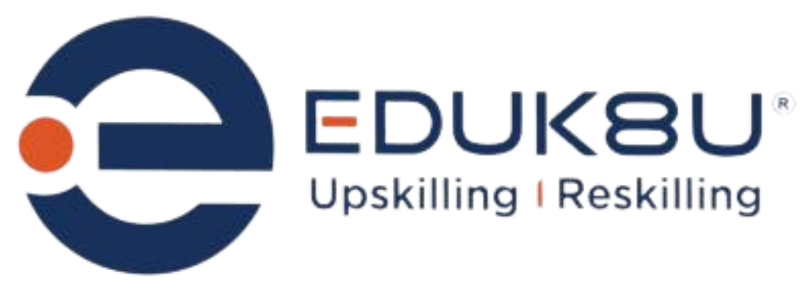After many years in HR and business transformation consulting, along with senior management corporate roles and understanding the landscape of Malaysia in human resource management (HRM), we decided to launch a Post Graduate Certificate qualification in Labour Law and Industrial Relations Management.
For Managers in HR, enrolling in HR certification programs in Malaysia can help enhance their human resource and people management skills. It has been observed that the lack of these skills could lead to reduced productivity, low employee morale, increased attrition rates, and a surge in wrongful dismissal claims in Industrial Relations Court by employees against businesses (exceeding RM186 million from 2014-2017). Investing in HR certification can help improve your skills and those of your team, ensuring effective HR management practices and a healthy work environment.
You can also enroll for HR certification Malaysia. With this experience we observed that many managers needed to enhance their human resource and people management skills, which has led to reduced productivity, low employee morale, increased attrition rates and a significant increase in wrongful dismissal claims in Industrial Relations Court by employees against businesses (exceeding RM186million 2014-2017).
Understanding HR Management’s Role in an Organization
Commonly known that HRM is a function within an organisation concentrated on employee attraction, engagement, development, retention and directing personnel within the organisation. HRM deals with issues related to compensation, enforcing an employee performance management system, organisation development, safety, wellness, benefits, employee motivation, workforce planning, disciplinary management, training etc.
Furthermore, HR management plays a strategic role in supporting and advising people managers (line or business unit managers), enhancing workplace culture and environment, and it has become an influential partner in the strategic development of an organisation and gaining competitive advantage in an ever challenging business landscape.
Some organizations believe their HR needs are catered for by outsourcing recruitment, payroll and perhaps L&D. Therefore demand for hr certification Malaysia is increasing day by day. However, the focus on HRM moves considerably beyond recruitment and payroll, to also coordination and measurable impact of the employee activities on the job.
Companies that strive for success in the Malaysian economy need managers to be adaptive, resilient, quick to change direction with strong internal customer service skill set. Within such an environment the effectiveness of HRM and people management skills are crucial to business success. The Past few years have seen the growth of organisational structures; and HR management has grown to be a task that has to be effectively managed by every level of management in an organisation and not just a sole responsibility of the Human Resource department.
Role of the Human Resource Department in HRM
The Human Resource department plays a strategic and operational role, that ensures that an organisation’s ‘people plan’ meets current requirements and that the organisation can identify, plan for and meet future organisational staffing and capability needs and they manage the flow of staff in, up, through and out of the organisation.
They manage HR policies, documentation and processes, which regulate employer and employee behaviour (such as legal compliance, ethical practices, meritocratic decision making and staff performance evaluation and conditions of service). Also ensuring that staff are appropriately trained to fulfil their work responsibilities and realise their potential.
Role of Departmental Managers in Human Resource Management.
Proactive people management requires close collaboration and ongoing dialogue between the HR department and departmental managers. Departmental managers are those managers to whom individual employees or teams directly report and who have the responsibility to a higher level of management for those employees or groups. They perform technical duties while taking on some managerial functions, from both their department and the human resource department.
There are often specific ‘people needs’ found within individual departments in an organisation, which cannot be addressed solely through a generic or service-wide approach, to HRM, by the human resource department. Where a company has only a service-wide ‘one size fits all’ approach to HR management, individual departments will be unable to take responsibility for identifying and addressing their people problems.
It is not about replacing the vital role of service-wide human resource management of the HR department; instead, it is about adding to and complementing this framework. It is only through strong relationship management and close collaboration, between professional HR managers and departmental managers, in individual departments that such a model can function successfully.
The Supervisor’s Role in HRM
A supervisor’s role in HRM is majorly that of setting the strategic course for the department to improve company performance through active people management in areas such as misconduct management, performance management and workforce utilisation and optimisation.
Areas in Which Departmental Managers Execute HRM Functions
From experience; some main areas in which Managers in HR department execute (albeit human resource manager may design the processes, they cannot be delivered by HR managers
Recruiting and Intake – supervisors take-on human resources duties in job hiring functions, such as identifying the need for workers or specific skills to improve departmental performance. Companies also implore the technical expertise of the managers in the interview group ensuring the incumbent has a good and clear understanding of the role, requirements and deliverables.
Training and Guidance – supervisors participate in the human resource functions of orientation, induction and on the job training. The handoff of new personnel from HR to supervisor usually happens during or post organisational orientation.
Development and Retention – Supervisors carry out evaluations on existing employees, or only provide data to HR for evaluation purposes – the timeliness of this is key to effective people management. As the first level of management, supervisors are usually the contact point for employees on issues relating to the human resource department. They carry out Job coaching and may be responsible for implementing disciplinary steps in the absence of HR staff.
Other essential areas in which departmental managers play a crucial role in HRM includes, employee performance appraisal, employee engagement (technically and how easy is it for employees to relate with their line manager), employees’ welfare and work-life balance, recognition (the extent to which employees feel their contribution is recognized), and communication (particularly encouraging or reinforcing alignment with business goals or core values).
Role of Effective People Management Skills
Having gained first-hand insight on the lack of quality people management skills and HR management practices by managers in organizations, as a great pitfall that leads to low productivity in many organizations, and managers end up blaming the human resource department. My first-hand experience of the past decade within various industries shows the growth of organizational structures whereby HRM has grown to be a principal role and responsibility that has to be effectively managed by every level of management in an organization and supported by the guidance of the human resources department. It’s essential for every manager and supervisor to hone good people management skills alongside their technical expertise, developed by taking a few professional people management development programs.
Conclusion
In summary, as highlighted earlier the first in Malaysia a Postgraduate qualification with SHRM Achievement Endorsement for managers to professionalize themselves in handling and dealing with matters related to staff misconduct, staff performance management, workforce planning, documentation and the employment law. Giving the necessary training and qualification for supervisors in significant aspects of Human Resource Management and I recommend it as lasting solutions to poor personnel management for Supervisors or Departmental Managers across any organization. Now you can easily enroll yourself for HR certification in Malaysia with best business school eduk8u









